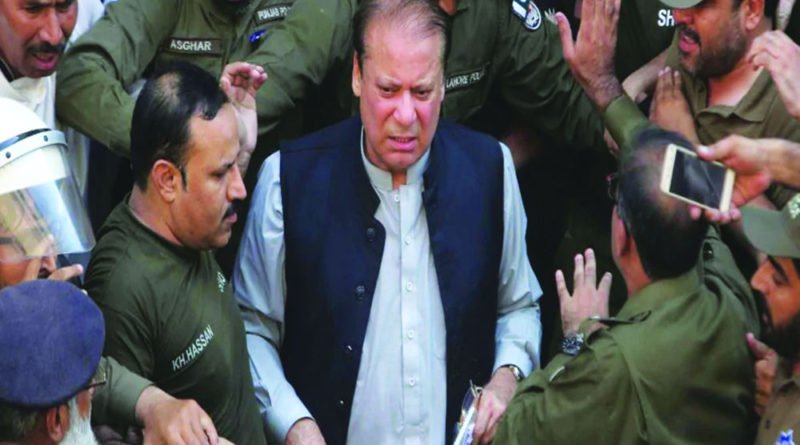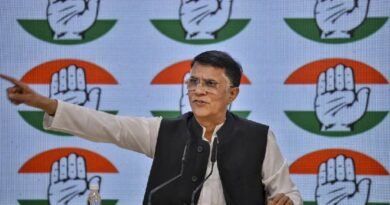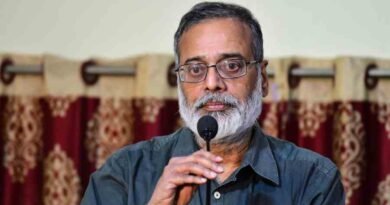Outwitting the Generals
In one stroke, Sharif has torn the traditional Pakistani cover of the ‘civilian govt’ and made the military directly accountable and responsible for the country’s fate
Mian Saheb is an unlikely Pakistani politician who has spent a career trying to be someone he really isn’t. When the Pakistan Muslim League-Nawaz (PML-N) leader and former Prime Minister of Pakistan, Nawaz Sharif, was incarcerated in jail and was asked about his health, he had spouted Mirza Ghalib, “Unko dekhne sey jo aa jati hai muh par raunaq, woh samjhtey hai ke bemaar ka haal acha hai (On seeing her, my face lights up and she presumes that I’m much better now).” The portly Punjabi politician is the principal Opposition leader to the reigning Pakistani Prime Minister, Imran Khan, except that he is not based out of Pakistan (declared “absconder” of bail and currently in the United Kingdom) and is actually of Kashmiri ethnicity (paternal side from Anantnag and maternal side from Pulwama). Nevertheless, the thrice elected and the longest-serving PM is a trapeze artist who revels in managing contradictions. Sharif has now fired his most calculated salvo against the Pakistani “Deep State” or military.
In Pakistan’s stuttering democracy, the ubiquitous shadow of barrel-chested military men operating out of Rawalpindi headquarters is mentioned only in deferential whispers — addressed euphemistically as Farishtas (angels) or Khalai Maqlook (alien creatures), who usually manipulate from the background. And occasionally they step in formally, like Ayub Khan, Yahya Khan, Zia-ul-Haq or Pervez Musharraf. But the veteran of Pakistani intrigues has broken traditions of indirect allusions and brazenly name-called the Chief of Pakistan Army Staff, General Qamar Bajwa, along with the infamous Inter-Services Intelligence (ISI) to be the real movers and shakers of Imran Khan’s Government. In one stroke, Sharif has torn the traditional Pakistani cover of the “civilian government” and made the military directly accountable and responsible for the country’s ongoing and inevitable fate and predicament in the public imagination.
Sharif’s current democratic grandstanding notwithstanding, he himself is a product of the Pakistani military establishment and its machinations. While it is widely presumed that Sharif was born of the former military dictator, General Zia-ul-Haq’s personal preference, it was actually another quintessentially slippery Pakistani General, Ghulam Gilani, to whom Mian Saheb owes his political initiation.
Lieutenant-General Ghulam Gilani’s colourful past had included taking a year-long sabbatical to fight in the Kashmir valley as an “irregular” (Indo-Pak war of 1947-48), fighting the 1965 and 1971 Indo-Pak wars, serving as the Director-General of the notorious ISI, partaking in Zia-ul-Haq’s coup d’état, which was ironically code-named “Fair Play” and ill-advising Zulfiquar Ali Bhutto till his end to the gallows.
Later, General Zia appointed Lieutenant-General Ghulam Gilani as the Governor of the all-powerful Punjab province, where he deliberately plucked out an ostensibly safe, non-feudal and pliant industrialist, Nawaz Sharif, to be the Finance Minister of Punjab. The urbane, obliging and malleable Sharif soon wormed his way to be the Chief Minister in the dark and transformational days of Zia’s Shariaised Pakistan, even though Sharif was hardly a modicum of religious piety.
Though not really a Punjabi, feudal or a military man, Sharif was a player, manipulator and a survivor. Soon after Zia’s mysterious plane crash, he tactically aligned with religious parties, took ISI’s beneficence and split with a rival faction within Zia’s political party, Pakistan Muslim League (Pagara group) to later form Pakistan Muslim League (Nawaz) or PML-N. Sharif’s then rival Benazir Bhutto (Pakistan People’s Party) had earlier paid a more personal price of losing her father in the fight against the Pakistani Generals but Sharif was more conversant with the inner workings of the “Deep State.”
But even the wily Sharif has erred, miscalculated and underestimated the power of Pakistani Generals. Mian Saheb has had to deal with six Pakistani military chiefs (including appointing four of them personally) and has the dubious record of fractious relations with all, without exception. Sharif’s first appointee, General Waheed Kakar, had later pressurised him into resigning as the PM. By Sharif’s second term, he had inherited Benazir Bhutto’s appointee, General Jehangir Karamat, with whom Sharif differed and who he forced into a premature resignation. In hindsight, hardly-the-wiser, Sharif selected an ostensibly safe Mohajir, General Pervez Musharraf, who not only initiated Kargil on his own but also bumped off Sharif to Saudi Arabia after yet another coup d’état. In his third innings as the PM, Sharif had to tread carefully with the unpredictable General Pervez Kayani (appointed earlier by Sharif’s bête noire, Pervez Musharraf), who, too, extended his tenure unilaterally. Sharif’s third personal and unlikely (again superseding others) choice of General Raheel Sharif was to be no different with the “Army House” routinely calling all shots and defining the “red lines” for the Sharif dispensation.
General Raheel Sharif elicited embarrassing retractions (for example, post Ufa summit), policy flip flops and publicly lectured the civilian Government on corruption (for example, Panamagate). But it is the fourth personal choice of Sharif who is at the centre of the ensuing gambit, General Qamar Bajwa — who too superseded others and was supposedly apolitical and low profile. The Generals have historically got the better of Nawaz Sharif, because they consistently outwitted or bulldozed Mian Saheb by tactically propping his political rivals with no real ideological preferences, except for protecting their own institutional turf. The invaluable cover and protection to the Pakistani military was afforded by the façade of the civilian Government.
This time, Sharif has drawn blood, redrawn the battle lines and for once, boxed the military generals into a huddle. Unfortunately, for the Pakistani generals, the Imran Khan Government is failing desperately at all levels and the “Deep State” or the Pakistani military is unable to extricate itself from the “Titanic” portents.
The Pakistani public is increasingly restive, suspicious and convinced of the military ghosts at work. And the Generals cannot be saddled with the “failures” of the civilian Government as they delegitimise the institution that has thrived despite the humiliations of 1965, 1971 and Kargil. Sharif has punted on forcing the military establishment to pull the plug on the Imran Khan Government, as they have historically done, whenever in such situations. This time, Mian Saheb may just have outwitted the Generals?
(The writer, a military veteran, is a former Lt Governor of Andaman & Nicobar Islands)
Source: The Pioneer




